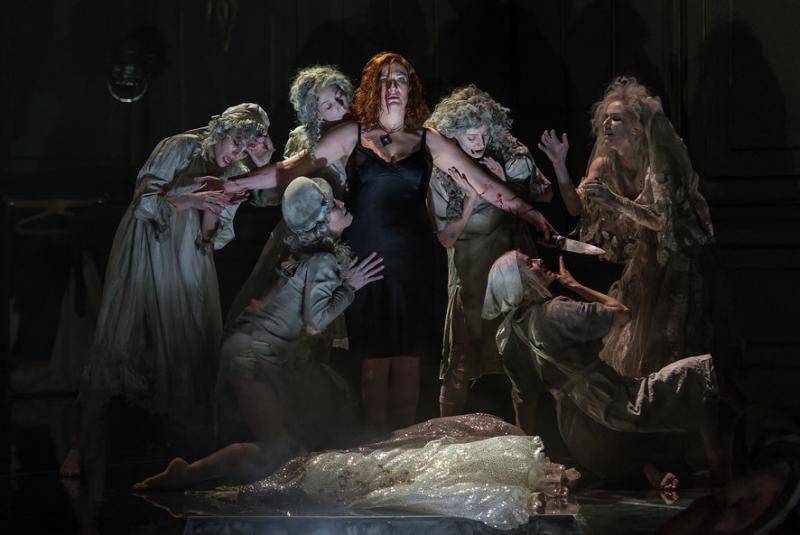Anna Chen – Wednesday, 13 March 2013

My review in the Morning Star. The dusky woman outcast mistrusted for her talents is an old, old story that’s still around today.
Medea
Coliseum, London WC2
Tuesday 12 March 2013 by Anna Chen
An ENO version of Medea ignores its subversive possibilities as a vision of imperial plunder and betrayal
It’s curious how many operas feature women who are outcasts in some way.
Carmen, Turandot, Violetta in La Traviata and Cho Cho San in Madam Butterfly transgress social norms and have to be punished for it.
ENO presents the first British production of Marc-Antoine Charpentier’s 17th-century French baroque opera Medea, which has perhaps the ballsiest tragic outcast heroine of them all, bringing intellect and magical powers to the mix.
The action opens in the sanctuary of Corinth after Medea (mezzo-soprano Sarah Connelly), princess of Colchis, has helped Jason (Jeffrey Francis) steal the golden fleece in order to restore him to his rightful place as king of Iolcos. She has betrayed her father, killed her own brother and escaped with Jason, bearing him two sons.
Having thus burnt her bridges spectacularly, she is in turn betrayed by the ambitious Jason who falls for Creusa, daughter of King Creon of Corinth.
Thomas Corneille’s libretto echoes Euripides’s play of the Jason myth, which painted Medea as an archetypal woman scorned, her white-hot fury destroying not only her love rival but also her own sons in order to punish an errant husband.
Its misogynistic message – that powerful women are a devilish disturbance in the cosmic balance – demands questioning.
Coming from the edge of the ancient Hellenic world in what is now modern Georgia, where Asia and “barbarism” begin, Medea would have been a dark-skinned “other” compared to the fair Corinthians.
Mistrusted for the very powers that fulfil Jason’s ambitions and then, as a shamed, humiliated and displaced queen with nowhere to go, her sons would have been no better than slaves. Was killing them an act of mad revenge or one of mercy when all was lost?
The only hint of the latter is in the line buried in Euripides: “If I hesitate now someone else will murder them more cruelly.” Medea’s dilemma is fascinating and beyond any mere domestic upset.
It is therefore a pity that ENO’s production ignores those dramatic possibilities, sticking to the cliche of wrathful harpy aided by the demons of jealousy and vengeance.
Having timidly distilled conflict into blonde versus brunette, the designers stick Medea in a dowdy knee-length skirt suit with white tights that undermine her transformation into a supernatural force. This is a queen of somewhere very dark, not a bank manager.
Played by awesome house-shaking bass Brindley Sharratt, Creon’s fascist impulses (“We must silence all discontent”) are linked to his depraved incestuous desire for Creusa.
But, although the setting is updated to World War II, by failing to subvert the traditional reading of Medea’s motivations, this production misses the chance to do something exciting and different with a murderous tale of imperialist conquest, theft and betrayal.
Runs until March 16. Box office: (0207) 845-9300.
Here’s a modern take that could be titled: MEDIA

http://www.annachen.co.uk/
Anna’s food blog here:
http://annacheneats.blogspot.com/
